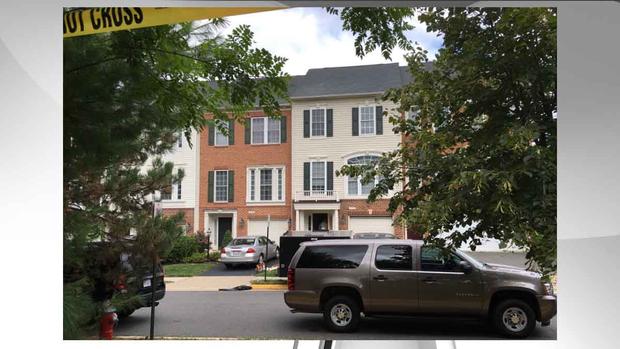VIRGINIA
Details in a federal criminal complaint spell out Nicholas Young alleged involvement in helping ISIS terrorist including purchasing gift cards for mobile-messaging accounts that the terrorist group uses in recruiting others to join ISIS.
Federal officials arrested the 36-year-old Fairfax, Virginia who is employed by the Metro Transit Police Department as a law enforcement officer.
Read the Criminal Complaint click here: U.S. Department of Justice.
According to the affidavit filed in support of the criminal complaint, Young has been employed as an Metro officer since 2003.
Law enforcement first interviewed Young in September 2010 in connection with his acquaintance, Zachary Chesser, who had been arrested and subsequently pleaded guilty to attempting to provide material support to a designated foreign terrorist organization.
Over the next several years, Young allegedly had numerous interactions with undercover law enforcement personnel and an FBI confidential informant regarding his knowledge of and interest in terrorism-related activity.
Many of these interactions were recorded.
Law enforcement also interviewed Young’s family and co-workers. In 2011, Young met with an undercover law enforcement officer, and several of these meetings included another of Young’s acquaintances, Amine El Khalifi, who later plead guilty to charges relating to his plan to conduct a suicide bombing at the U.S. Capitol Building in 2012.
According to the affidavit filed in support of the criminal complaint, in 2011, Young traveled to Libya once and attempted to travel there a second time.
Young told FBI agents that he had been with rebels attempting to overthrow the Muammar Qaddafi regime. Baggage searches revealed that Young traveled with body armor, a kevlar helmet and several other military-style items, according to the allegations.
According to the criminal complaint, around 20 separate occasions in 2014, Young met with the informant, who posed as a U.S. military reservist of Middle Eastern descent who wanted to travel overseas to join ISIS.
During these conversations, Young allegedly advised the informant on how to evade law enforcement detection by using specific travel methods and advised the informant to watch out for informants and not discuss his plans with others.
Also in 2014, the informant led Young to believe that he had successfully left the U.S. and ISIS.
The informant had no further contact with Young. All further communications between Young and the informant’s email account were actually communications between Young and FBI undercover personnel posing as the informant. In June 2015, Young emailed the informant asking for advice from the informant’s commanders on how to send money to ISIS.
Young said, “[u]nfortunately I have enough flags on my name that I can’t even buy a plane ticket without little alerts ending up in someone’s hands, so I imagine banking transactions are automatically monitored and will flag depending on what is going on.”
In December 2015, the FBI interviewed Young, ostensibly in connection with an investigation into the whereabouts of the informant, according to the criminal complaint.
Young allegedly said that the CHS had left the United States to go on a vacation tour in Turkey approximately one year ago. In addition, according to the allegations in the complaint, Young said that he knew of no one in the United States or overseas who helped the CHS cross the Turkish border into Syria.
On July 18, 2016, Young allegedly communicated with a person who he believed to be the informant regarding purchasing gift cards for mobile-messaging accounts that ISIS purportedly uses in recruiting others to join the terrorist organization.
According to the affidavit filed in support of the criminal complaint, on July 28, 2016, Young sent 22 gift card codes to the FBI undercover officer posing as the informant with a message that stated: “Respond to verify receipt . . . may not answer depending on when as this device will be destroyed after all are sent to prevent the data being possibly seen on this end in the case of something unfortunate.”
The codes were ultimately redeemed by the FBI for $245, according to court documents.
The defendant is presumed innocent unless proven guilty.

